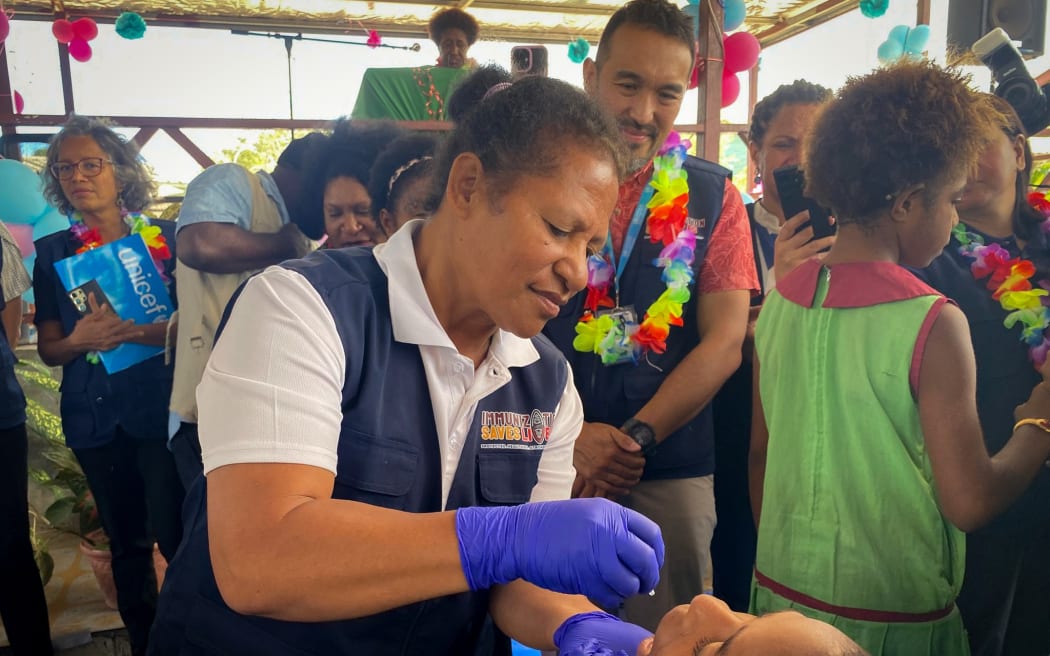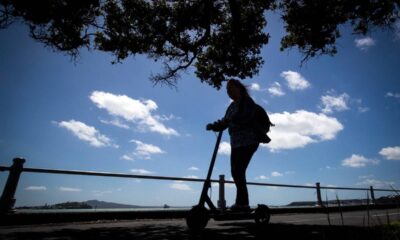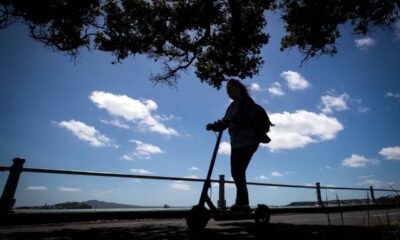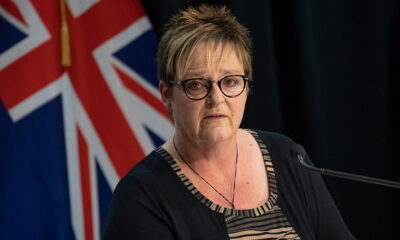World
Papua New Guinea Launches Immunisation Drive Amid Polio Outbreak

In Papua New Guinea, health officials have confirmed more than 31 instances of polio since the disease re-emerged earlier this year. The World Health Organization (WHO) announced these figures on March 15, 2024, coinciding with the launch of a national immunisation campaign in the capital, Port Moresby. The outbreak was first declared in May 2023 after two children tested positive for the virus.
Polio, or poliomyelitis, is a highly infectious disease primarily impacting children under five, although it can also affect older age groups. While many infected individuals show no symptoms, the disease can lead to irreversible paralysis in approximately 1 percent of cases. The virus spreads through person-to-person contact or ingestion of contaminated substances, particularly in areas with inadequate sanitation.
The WHO reported that the 31 detections of the virus were confirmed through environmental and community surveillance since May 2023. Although no cases of paralysis have been documented, the risk of further transmission remains high, particularly due to low immunisation rates and challenges in reaching children in remote areas.
The two children who tested positive in May fell into a category that the WHO does not classify as “polio cases” because they exhibited no symptoms or paralysis. This distinction highlights the complexities involved in tracking the disease.
The national immunisation campaign will primarily target mainland provinces identified as high-risk areas. In total, 17 provinces will receive both the oral polio vaccine and the injectable polio vaccine. The New Guinea Islands provinces are categorized as lower-risk, with plans for one round of the vaccine injection.
“This moment represents more than just a public health initiative—it is a bold step forward in our shared mission to secure the health and future of Papua New Guinea’s youngest generation,” stated Dr. Masahiro Zakoji, the WHO representative in Papua New Guinea.
According to a report from UNICEF, childhood immunisation coverage in Papua New Guinea remains critically low. The agency found that only about 50 percent of children born each year receive essential life-saving vaccines, including the oral polio vaccine. This translates to approximately 120,000 children unvaccinated annually, leaving the population vulnerable to outbreaks. To achieve herd immunity against polio, vaccination coverage should reach at least 95 percent.
Despite a global reduction in polio cases by over 99 percent in the past 35 years, many children still miss out on vaccinations. UNICEF reported that approximately 85 percent of these unvaccinated children live in fragile settings, often affected by conflict, natural disasters, or humanitarian crises.
Papua New Guinea was declared polio-free in 2000; however, the resurgence occurred in 2018 when a vaccine-derived strain led to 26 confirmed cases across nine provinces. The U.S. Centers for Disease Control and Prevention (CDC) noted that this strain is linked to the weakened live virus used in the oral polio vaccine. If the virus circulates in populations with low immunisation rates or in unimmunised individuals, it can revert to a form that causes illness and paralysis.
The 2018 outbreak was eventually controlled through enhanced vaccination efforts, community engagement, and improved surveillance. The current outbreak is attributed to a vaccine-derived poliovirus type 2. In May 2023, Papua New Guinea’s health department indicated that this strain is a rare variant of the virus that can emerge in under-immunised communities but is manageable through effective vaccination strategies.
The urgency of the current immunisation campaign underscores the importance of addressing public health challenges to protect the future health of Papua New Guinea’s children.
-

 World1 week ago
World1 week agoPrivate Funeral Held for Dean Field and His Three Children
-

 Top Stories2 weeks ago
Top Stories2 weeks agoFuneral Planned for Field Siblings After Tragic House Fire
-

 Sports3 months ago
Sports3 months agoNetball New Zealand Stands Down Dame Noeline Taurua for Series
-

 Entertainment3 months ago
Entertainment3 months agoTributes Pour In for Lachlan Rofe, Reality Star, Dead at 47
-

 Entertainment2 months ago
Entertainment2 months agoNew ‘Maverick’ Chaser Joins Beat the Chasers Season Finale
-

 Sports3 months ago
Sports3 months agoSilver Ferns Legend Laura Langman Criticizes Team’s Attitude
-

 Sports1 month ago
Sports1 month agoEli Katoa Rushed to Hospital After Sideline Incident During Match
-

 World2 weeks ago
World2 weeks agoInvestigation Underway in Tragic Sanson House Fire Involving Family
-

 Politics2 months ago
Politics2 months agoNetball NZ Calls for Respect Amid Dame Taurua’s Standoff
-

 Top Stories2 weeks ago
Top Stories2 weeks agoShock and Grief Follow Tragic Family Deaths in New Zealand
-

 Entertainment3 months ago
Entertainment3 months agoKhloe Kardashian Embraces Innovative Stem Cell Therapy in Mexico
-

 World4 months ago
World4 months agoPolice Arrest Multiple Individuals During Funeral for Zain Taikato-Fox





















